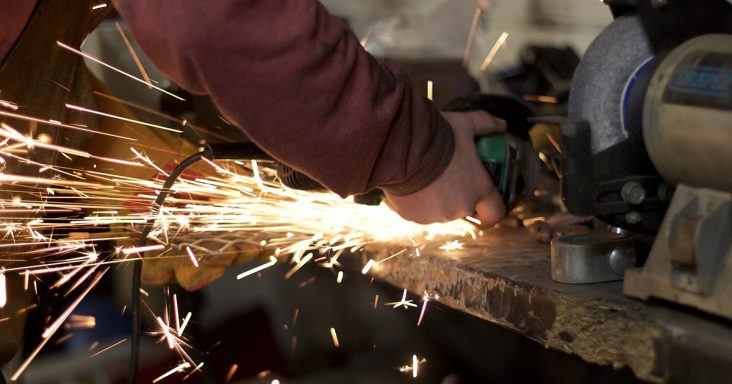Manufacturers say growth slowed in July; some see recession signs
by August 1, 2022 12:49 pm 878 views

Economic activity in the manufacturing sector increased at a slower rate in July, from June, as some manufacturers reported inflation was affecting business and had concerns about a recession, according to the Institute for Supply Management (ISM).
The July Manufacturing ISM Report on Business released Monday (Aug. 1) shows the purchasing managers’ index (PMI) fell by 0.2 percentage points to 52.8% in July, from 53% in June. A reading above 50% indicates the manufacturing sector is growing.
According to the report, new orders and employment contracted, while production and backlogs rose. Supplier deliveries slowed at a slower rate, raw materials inventories grew and customers’ inventories were too low. Prices increased at a slower rate. Exports and imports increased amid record-long lead times for production materials and maintenance, repair and operating supplies.
“The U.S. manufacturing sector continues expanding – though slightly less so in July – as new order rates continue to contract, supplier deliveries improve and prices soften to acceptable levels,” said Timothy Fiore, chair of the ISM Manufacturing Business Survey Committee. “According to Business Survey Committee respondents’ comments, companies continue to hire at strong rates, with few indications of layoffs, hiring freezes or headcount reduction through attrition. Panelists reported higher rates of quits, reversing June’s positive trend. Prices expansion eased dramatically in July, but instability in global energy markets continues.
“Sentiment remained optimistic regarding demand, with six positive comments for every cautious comment,” Fiore added. “Panelists are now expressing concern about the softening in the economy, as new order rates contracted for the second month amid developing anxiety about excess inventory in the supply chain.”
While the employment index contracted for the third consecutive month, panelists indicated a month-over-month improvement in hiring ability in July, said Fiore, noting that turnover challenges, including quits and retirements, have prevented companies from reaching adequate staffing levels.
Following manufacturing industries reported moderate-to-strong growth in July: petroleum and coal products, computer and electronic products, transportation equipment, and machinery.
“Manufacturing performed well for the 26th straight month,” Fiore said. “There are signs of new order rates softening – cited in 16% of general comments, compared to 17% in June – as panelists are increasingly concerned about excessive inventories and continuing record-high lead times. Employment activity remained strongly positive in spite of the uncertainty with new order rates.”
RESPONDENT COMMENTS
In the computer and electronic products industry, a respondent said, “material extended lead times still affecting business, and the challenging labor market is a huge factor too. Backlog is healthy; we just cannot deliver to customers due to material issues.” In the transportation equipment industry, a respondent said, “chip shortages remain; however, the COVID-19 lockdowns in China are presenting even worse supply issues.”
A machinery industry respondent said new orders have slowed, and “logistical issues have yet to improve. Long lead times for materials and labor shortages are still a major problem.”
Other respondents noted concerns about inflation and a pending recession. A respondent in the chemical products industry said, “inflation is slowing down business. Overstock of raw materials due to prior supply chain issues and slowing orders.” A respondent in the food, beverage and tobacco products industry said, “growing inflation is pushing a stronger narrative around pending recession concerns.” Customers are cutting back on orders to reduce inventories.
In the fabricated metal production industry, a respondent said, “our markets are still holding up; however, I believe a slowdown is coming. We are cautious about going out too far with orders. Also, I believe the general market is in the beginnings of a recession.” And in the plastics and rubber products industry, a respondent said, “current order books are full, but there have been signs of a slowdown beginning in the fourth quarter.”
